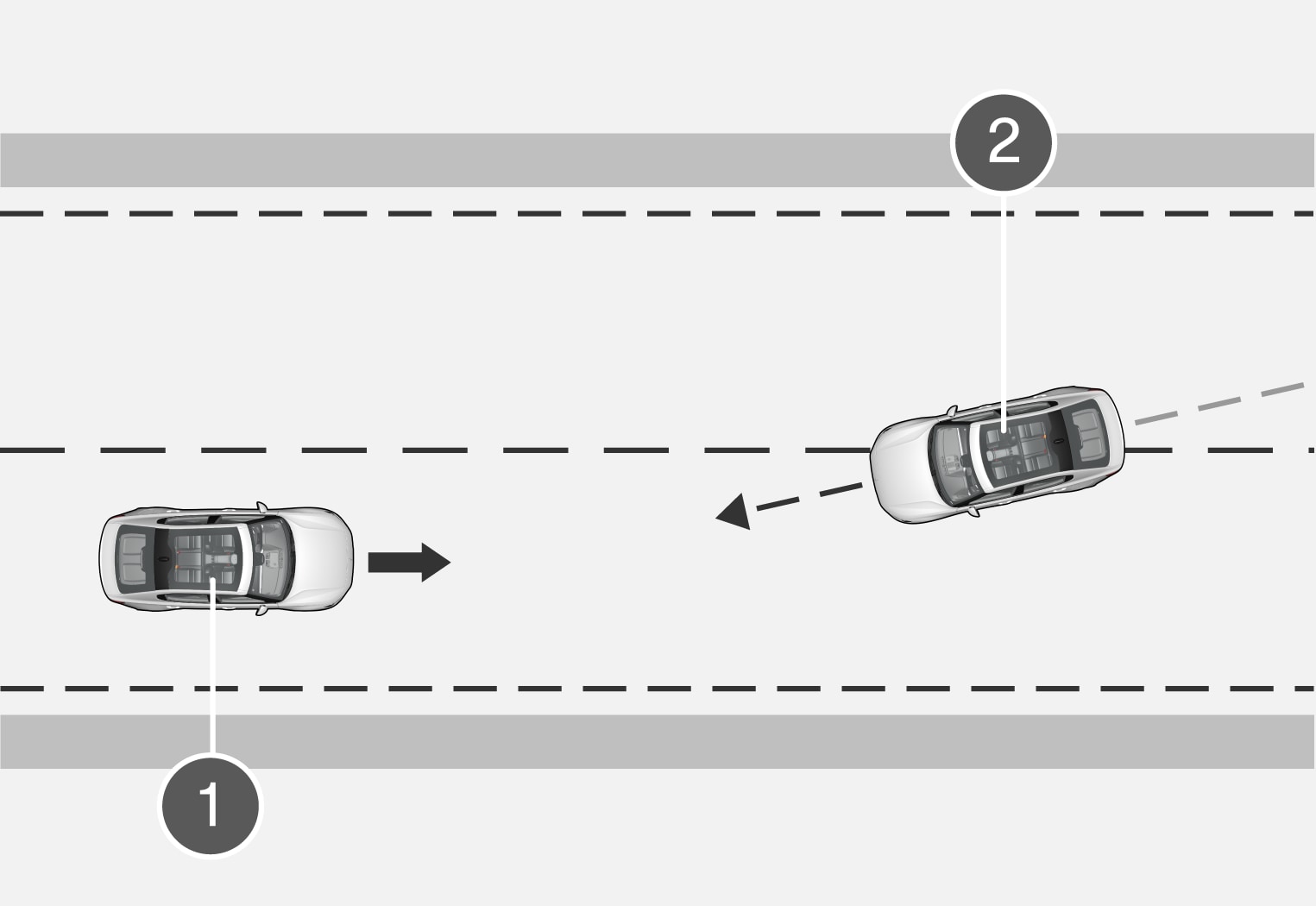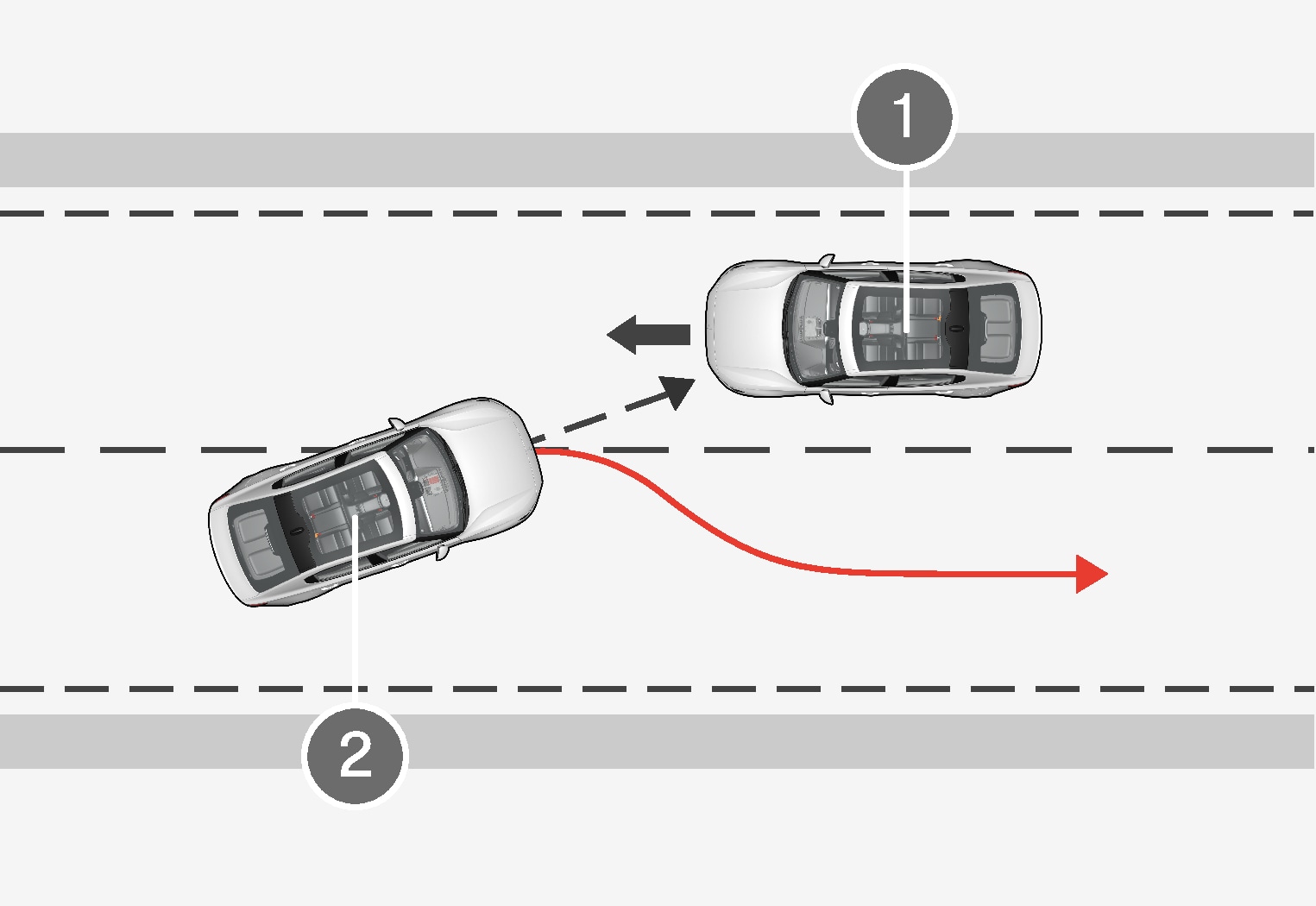Assistance at risk of collision in oncoming traffic
Meeting in own lane
If an oncoming vehicle enters your car's lane and a collision is unavoidable, the function can reduce the car's speed with a view to reducing the violence of the impact.

 Your car
Your car Oncoming vehicles
Oncoming vehicles
- your car must be travelling at more than 4 km/h (3 mph)
- the road section must be straight
- your car's lane must have clear lane markings
- your car must be positioned straight in its own lane
- the oncoming vehicle must be within your car's lane markings
- the oncoming vehicle must have its headlamps switched on
- this function can only handle "front to front" collisions
- this function can only detect vehicles with four wheels.
When drifting across to oncoming traffic
The function can help a distracted driver who does not notice that the car is drifting into the oncoming lane.

 Oncoming vehicles
Oncoming vehicles Your car
Your car
The function is active within the speed range 60-140 km/h (37-87 mph) on roads with clearly visible lane markings/lines.
If the car is about to leave its own lane while an oncoming vehicle is approaching at the same time, the function can help the driver to steer the car back into its own lane.
However, the function does not intervene with steering assistance if the direction indicator is used. If the function detects that the driver is actively driving the car, activation of the function will be delayed.